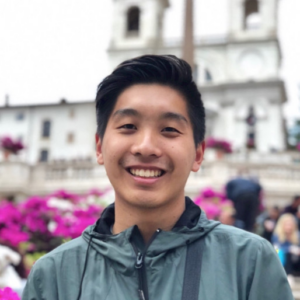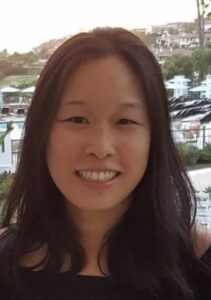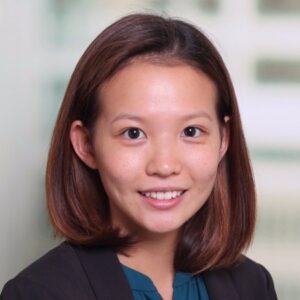 Abacus Actuaries AAPI Interview with CAS Candidate, Kevin Shin
Abacus Actuaries AAPI Interview with CAS Candidate, Kevin Shin
How did you get into the actuarial profession?
My high school friend, who is also an actuary, knew I liked math and recommended I apply for actuarial science as my major. Originally, I wanted to become a high school math teacher, but after doing some research on the actuarial profession, I thought it would be an exciting, unique career, and I would regret it if I didn’t try.
What does Asian American and Pacific Islander Heritage month mean to you?
AAPI Heritage month allows me to feel proud of my cultural background. The word “AAPI” encompasses thousands of unique traditions and customs that shows the beauty of our culture. A personal tradition of mine is spending time with my grandparents and playing a Korean card game with them called 고스톱 (go-stop).
Do you think the CAS prioritizes diversity?
I believe the CAS is making the correct efforts to promote diversity, such as hiring Mallika Bender as the DE&I staff actuary and partnering with the various actuarial affinity groups. Additionally, the DE&I page on the CAS website includes barriers to entry, diversity data, and blog posts, which are all great resources for anybody to learn more about this topic.
Do you have a relationship with/or feel a sense of community with other Asian American or Pacific Islander actuaries?
It was difficult for me when I first began my career because there weren’t many AAPI actuaries at my company. Over time, I was able to meet more AAPI actuaries through conferences, meetings, and especially through Abacus Actuaries. Abacus Actuaries gave me and other Asian actuaries a safe space for us to talk about our experiences and to develop a professional network.
What is something the average person does not know about being/becoming an actuary?
To be successful in this career, you not only need to be good at math, but also be able to explain your solutions in simplistic ways for people to understand. Actuaries solve business problems, not math problems.
 Abacus Actuaries AAPI Interview with Joyce Wang, ACAS
Abacus Actuaries AAPI Interview with Joyce Wang, ACAS
How did you get into the actuarial profession?
It was a lucky accident. For most of my life, I thought I would become a doctor, so when I changed my mind, I was a bit lost with what else to do with my neuroscience & psychology degree. At the time, my college roommate was pursuing an actuarial career and suggested it to me, so I studied and passed a couple of the exams before applying for entry level positions. Surprisingly, it ended up being a great fit for me.
What does Asian American and Pacific Islander Heritage month mean to you?
To be honest, I didn’t know that the month of May was Asian American and Pacific Islander Heritage Month until recently, but when I found out, I made more of an effort to learn about AAPI experiences and history in the U.S. Being a Taiwanese-American is an everyday experience for me, so I don’t really see this month as any different from any other month. Instead, I see it as a reminder to understand and gain different perspectives, which isn’t limited to just this month.
Do you have a relationship with/ or feel a sense of community with other Asian American or Pacific Islander actuaries?
Yes, I’ve been lucky to have been able to connect with other AAPI actuaries wherever I’ve worked. At the end of the day, I believe shared experiences and common interests are what bonds people, and for me, the common denominator has always been food. I know in many Asian cultures providing, sharing, and cooking are ways for families to show that they care. For me, there are certain foods that always remind me of home and provide me with a sense of comfort and belonging. This is something that has helped me build a connection with many other AAPI actuaries over the years beyond a professional level to a more personal one. I know others might not have the same opportunities to connect with other AAPI actuaries, so I also wanted to give a shoutout to Abacus Actuaries, who have created a space for purposeful conversations about professional growth and development for actuaries with Asian heritage.
What is your favorite aspect of your job?
I enjoy the overall learning aspect of my job. The world is constantly evolving, and insurance isn’t exempt from that, and must adapt to any changes. I know that twelve years of experience isn’t that much when you consider the span of longer careers, but I can easily say that I’m always finding ways to challenge myself and push beyond my comfort zone.
 Abacus Actuaries AAPI Interview with Sue Ann Loo, FCAS
Abacus Actuaries AAPI Interview with Sue Ann Loo, FCAS
How did you get into the actuarial profession?
I learned about the actuarial profession from my mom. My mom works at a bank and one of her responsibilities is to review loan applications. One day, she stumbled upon an application from an actuary. She was impressed by the annual income and earning potential figures, so she recommended I investigate the career. Upon doing some research about the profession, we quickly learned that it also comes with high job security.
My parents have always prioritized academics and job security. They were raised in a small village and did not have much growing up. For example, my mom grew up on a farm and was the only one to complete high school out of her eight siblings. Since I was young, my parents encouraged me to focus on math and science classes, so that I could obtain a job with financial stability. Becoming an actuary ended up being the best thing for me at that time, and I have no regrets about my decision!
Did your cultural background impact your entry into the profession? If so, how?
I was born and raised in Malaysia. After graduating high school, I enrolled in a college transfer program where I started my freshmen and sophomore years at a local college and completed my junior and senior years at a university in the United States.
There is a barrier of entry into the actuarial profession for international students like me. There are multiple contributing factors to that barrier, but the main factor is the limited number of companies who sponsor work visas. With the limited number of companies and positions, there is a heightened level of competition among international students.
Additionally, the American culture is very different from what I am used to. For example, due to my Eastern upbringing, I find speaking up for myself or initiating my ideas to be challenging. However, in the U.S., it is highly encouraged and respected to speak up and be confident. During my senior year, I decided to push myself out of my comfort zone by joining a business fraternity and attending more networking events at my university. While those efforts were to demonstrate my academic abilities in order to distinguish myself from other actuarial candidates, I think that there’s an art of finding the right balance between maintaining authenticity and adapting to one’s environment.
What does Asian American and Pacific Islander Heritage month mean to you? Do you have a personal tradition or any specific way you recognize the time period?
I am based in Chicago and live close to the lake. Walking on the lake front trail has been an evening and weekend ritual, that developed during COVID times. On one of my walks, I saw a slew of cars with signs condemning Asians and blaming Asians for the pandemic. I’ve seen anti-Asian hate incidents in the news but seeing it with my own eyes was a mix of disappointment, anger, frustration, and sadness. It was something I didn’t expect to see happen in Chicago given how diverse a population the city has. Incidents like that make me feel unsafe and anxious especially when I am out by myself. I stopped listening to podcasts while walking to ensure I am alert and aware of my surroundings, and I also clench onto my pepper spray. I also know my Asian friends share similar feelings of insecurity in that regard as well.
Shortly after the incident, one of the principals checked in and asked me how I was doing with the rise in Anti-Asian violence. I brought up the incident and opened up about my fears, and despite my best efforts, I wasn’t able to hold back tears. I avoided speaking to my family about it as I did not want them to worry. After our conversation, I felt some relief that I was able to confide in someone.
Following up on this conversation, I wanted my fellow Asian colleagues to experience relief, to create a safe space and an outlet to share their thoughts and feelings, and for them to know that they are not alone in this. That drove me to organize a check- in call for all Asian colleagues in my team where I recruited a couple of participants to share their personal stories during our listening sessions. A few weeks later, we established a formal group within EY called the Asian Actuaries Support Network (“AASN”). AASN was officially launched during AAPI month of 2021, so this is our one-year anniversary! In the past year, we have organized multiple events such as tea tasting, movie nights and panel discussions with Asian leaders in the insurance industry as well as mid-autumn, Diwali and Lunar New Year celebrations. I hope that through AASN, we will be able to cultivate a supportive work environment and sense of belonging, uplift and empower voices of Asian colleagues at the workplace with the goal of helping each other reach our full potential and career aspirations.
Do you think the CAS prioritizes diversity?
Based on my personal experiences, I do think that the CAS prioritizes diversity. Last spring, the CAS leadership conducted a virtual visit at EY. The format of the visit was an open dialogue, and the topic of Diversity, Equity, and Inclusion (DE&I) was discussed. We shared with CAS leadership that EY had recently formed a support network for AAPI actuaries within the firm (AASN). Jessica Leong, the CAS president at that time, reached out to learn more about the support network. Shortly after, I was in touch with Mallika Bender, CAS DE&I staff actuary. Through Mallika, I was able to connect with a group of Asian actuaries who were working on forming an actuarial diversity organization for AAPI actuaries. The organization is now known as Abacus Actuaries, and the CAS has been one of Abacus’ greatest allies, providing us with guidance as we worked on establishing the organization.
Additionally, the Diversity Impact Group (DIG) formed in 2020 is another example of CAS’ effort in the DE&I space. In my opinion, in addition to the standard committee structure, the DIG allows for more flexible micro-volunteering opportunities, which increases volunteer opportunities within the DE&I space.
Do you have a relationship with/ or feel a sense of community with other Asian American or Pacific Islander actuaries?
Last summer, I connected with a group of Asian actuaries who are passionate about promoting diversity and giving back to the actuarial community. We worked closely together and formed Abacus Actuaries. Our mission is to support and empower Asian actuaries to succeed in their careers, with the goal of having Asians to be represented in the highest ranks of the profession. We plan to achieve our goals by providing Asian actuaries with resources, support, and networking opportunities. For example, we recently launched a mentorship program where mentees are paired with mentors based on areas or topics of interest. It is a 6-month long program with periodic check-ins to ensure that participants are fully benefiting from the program.
In the past few months, we elected board members and officers, recruited volunteers, promoted our organization at the CCA, AAA, SOA, CAS, and CAMAR meetings, held our official launch event, conducted our first board meeting and more. I have learned so much from being on the Board and being the vice president of Abacus and I am grateful for the friendships with other Board members and committee members that I have developed. A few of the committee members and I have met up in person for dim sum, boba runs, and happy hours.
What is your favorite aspect of your job?
Definitely the people! The first team I joined out of college was small and not very diverse, which led to some microaggressions at work. It was emotionally taxing which took a toll on my physical health. After a year or so, I knew I needed a change and transferred to my current team. The team I am on now is much bigger and diverse than my initial team. All my coworkers and even the leaders of the practice take a great interest in getting to know who I am, which has completely changed my happiness level at work. My newfound comfort with my team allows me to be my authentic self at work. For instance, one of the Lunar New Year traditions I grew up with is a big family dinner with a special dish called the prosperity toss salad. It is a fun and tasty salad symbolizing abundance, prosperity, and longevity. Family and friends gather around the table to toss the salad while saying auspicious quotes and wishes. Given the distance, I haven’t been able to celebrate Lunar New Year with my family at home. During the past few years, I’d whip up some traditional dishes including the prosperity toss salad to share and celebrate with my EY family instead.
What is something the average person does not know about being/becoming an actuary?
Being an actuary is not about being good at math. In my opinion, it is about being able to apply fundamental actuarial concepts to solve problems and communicate solutions and ideas to various types of audience. Learning about the profession does not stop upon finishing all the actuarial exams; It is continuous as society and the world evolves.
We are grateful for the opportunity to collaborate this AAPI Month. You can learn more about Abacus Actuaries on their website.


